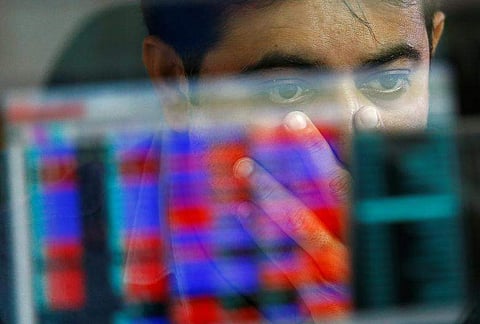

HYDERABAD: Markets are upset that minimum public shareholding in listed entities may be raised to 35 per cent from the current 25 per cent. Traders fear that such a move, if and when SEBI imposes it, will increase supply of shares and depress prices. However, research shows (much to the comfort of investors) that the unwanted price erosion will be limited and prices will regain original levels in just about a fortnight.
“Based on historic evidence, the negative correction in share prices is usually normalised and returns to original levels within 16-17 days following share sale by promoters,” Prasanna Tantri, Assistant Professor and Senior Associate Director, Center for Analytical Finance, ISB, told Express.
That’s because, as Tantri puts it, stocks aren’t commodities that gyrate simply based on demand and supply metrics. If shares behave like commodities, any increase in public shareholding should permanently reduce prices. In reality though, that didn’t happen in the past, when in 2010, SEBI mandated all non-public sector undertakings to have a minimum public shareholding of 25 per cent.
About 220 listed firms were affected by the regulation. Now, the trouble is that the latest proposal will see 25 per cent of all listed entities, or 1,174 firms to be precise, including blue chips like TCS and Wipro, coming under scrutiny. Yet, Tantri maintains that volatility won’t last long for one basic reason: “Stocks represent residual claims on a company’s cash flow, which in turn depend on a company’s business fundamentals and not on the number of shares offered for public.”
In fact, a recent joint research of Prof Tantri, Ankit Jain and Ramabhadran Thirumalai found that a promoter stake sale event leads to nearly 4 per cent decline in prices in the event week. However, seeing value, fresh money enters the stock reasonably quickly and the entire negative reaction gets offset within 17 days after the share sale.
As long as transfer of shares from promoters to the public doesn’t impact a company’s business, it shouldn’t impact cash flow, and hence, the share price. Even if share prices dip, fresh money will come into the market immediately if a share goes below its fundamentally correct price, he elaborates.
There is another argument based on price pressure. As per the hypothesis, any sudden increase in the supply of shares will lead to a temporary reduction in share price. It takes time for fresh money to enter the market. Several market frictions like restriction on participation by foreign investors, time taken by mutual funds and others to raise fresh money, among other reasons, keep prices of affected stocks depressed in the short run. However, eventually, fresh money enters and prices revert to their fundamental value, explains Tantri.
Dispelling fears
The raising of minimum public shareholding in listed firms to 35% from 25% will reduce share prices, the market fears
However, research by analysts say that while a promoter stake sale event leads to nearly 4% decline in prices in the event week; seeing value, fresh money enters the stock reasonably quickly and the entire negative reaction gets offset within 17 days of the share sale